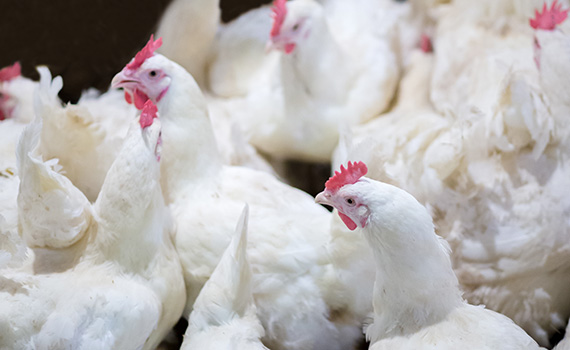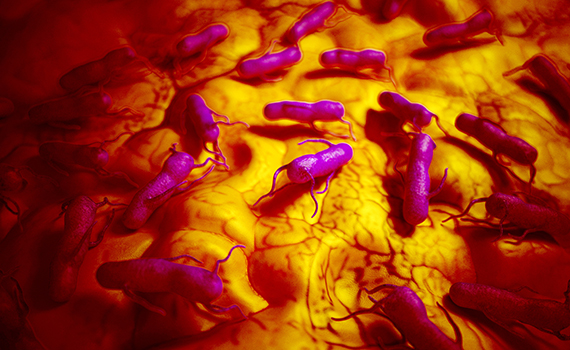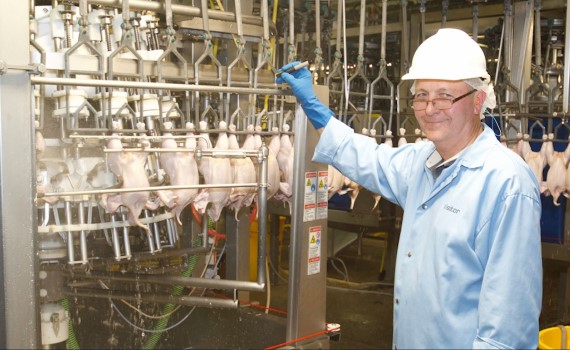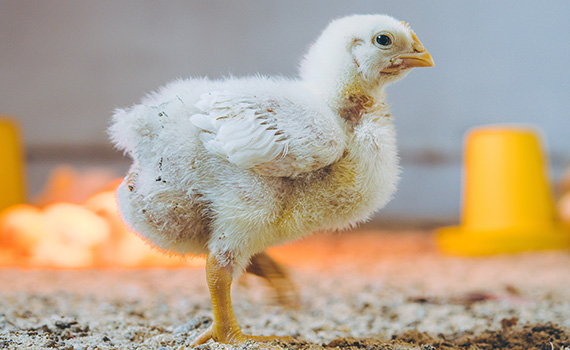S. Heidelberg colonization reduced with in-feed treatment
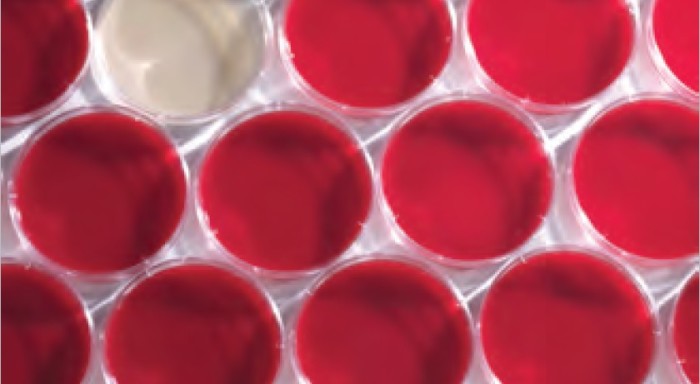
Broilers that received bacitracin methylene disalicylate (BMD®) plus a probiotic selected for its ability to survive the feed-pelleting process had a markedly lower prevalence of Salmonella Heidelberg colonization, reported Charles Hofacre, DVM, PhD, of the University of Georgia, at the 2014 International Poultry Scientific Forum.1
S. Heidelberg is the third-leading cause of human food-borne illness from Salmonella. Probiotics such as Lactobacillus administered in water can help reduce Salmonella colonization, but ease of use or consistency of application can be problematic, he explained. Therefore, Hofacre and colleagues tested the use of the spore-forming bacteria Bacillus spp., which can survive the feed mill pelleting process and be consistently and uniformly fed to chicken flocks.
In their study, one group of broilers was vaccinated against coccidiosis and then received the probiotic Bacillus licheniformis. Another group received BMD in the starter/grower feed plus the probiotic and salinomycin. A third group served as a control and received no treatment.
Investigators took drag swabs in all pens on 1, 14 and 42 days of age, as well as 10 ceca samples at 42 days of age, Hofacre said.
Broilers that received the probiotic or BMD plus the probiotic had a markedly lower prevalence of S. Heidelberg compared to controls. The odds of Salmonella detection was 77% lower in broilers receiving the BMD-probiotic treatment and 60% lower in broilers receiving only the probiotic. They also had a markedly lower feed-conversion ratio and high average bodyweight gain to 42 days of age, he said.
“…this study has demonstrated that a pelleting-temperature-tolerant Bacillus licheniformis can be used to successfully reduce the prevalence of Salmonella Heidelberg colonization in broilers to 42 days of age,” Hofacre said.
1 Hofacre C, et al. Reduction in Salmonella Heidelberg shedding and colonization using a Bacillus licheniformis probiotic, Optibac-L and an antibiotic BMD in broiler chickens. Abstracts, International Poultry Scientific Forum, Atlanta, 2014.
Posted on January 28, 2015
 We’re glad you’re enjoying
We’re glad you’re enjoying







